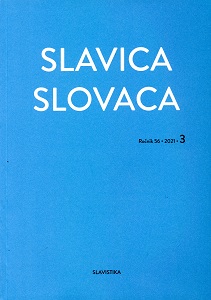Zircaloy života v okamihu smrti alebo prípad Gabriela Hruškovica (interpretačné aspekty literárneho synkretizmu)
The Mirror of Life in the Moment of Death or a Case of Gabriel Hruškovic (Aspects of Interpretation Concerning the Texts Constructed in a Way of Literary Syncretism)
Author(s): Timotea VráblováSubject(s): Cultural history, Slovak Literature, 18th Century
Published by: Slovenský komitét slavistov a Slavistický ústav Jána Stanislava SAV, v.v.i.
Keywords: Autobiography; Protestant funeral sermon; Protestant funeral culture; literary poetics of 18th century; a method lite¬rary of literary syncretism; pillar of values;
Summary/Abstract: The story about death of seven-year-old boy Gabriel Hruškovic is recorded fragmentarily, just as a small recollection, of his brother Samuel. Slovak Lutheran superintendent Samuel Hruškovic, the major Baroque author, translator, and intellectual, wrote his autobiographic book Vita Samuelis Hruskowitz (1719) being twenty-five-year-old. His autobiography was meant as a resource for a funeral sermon in case of his death. Of course, one can think he was too young to think of death, but his approach reflects instable life circumstances in the territory of Slovakia, typical for that time. Although being young he had survived several serious attacks against his life. He had also experienced loss of people whom were close to him. In the article I deal with an interpretation of contents referring to areas of values and emotional processing of life. Through those topics the author in terms of literary syncretism, a method used in contemporary writing, creates and model his own auctorial message. Distinguishing formal and semantic elements of syncretic modelling a text makes a space for a reader to contemplate and to process an extensive content and depth of a message.
Journal: Slavica Slovaca
- Issue Year: 56/2021
- Issue No: 03
- Page Range: 390-397
- Page Count: 8
- Language: Slovak

